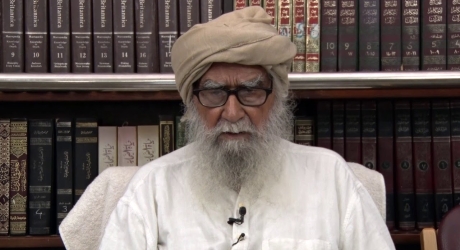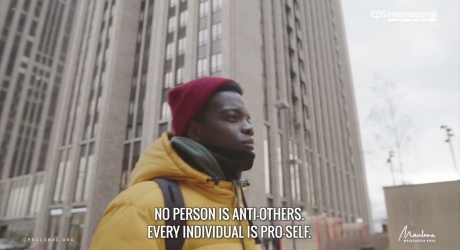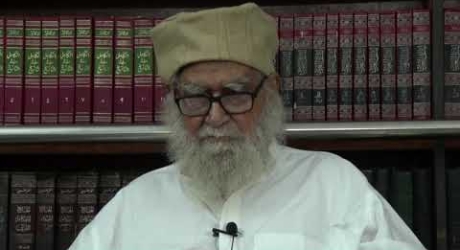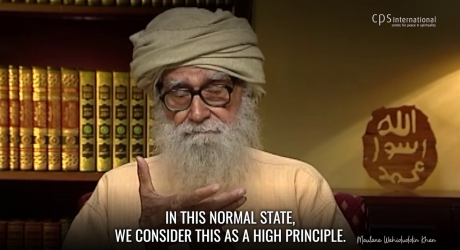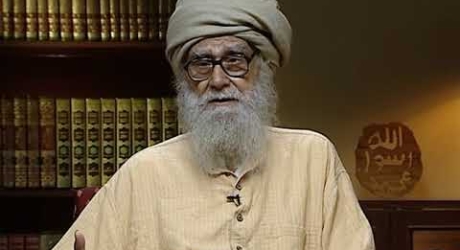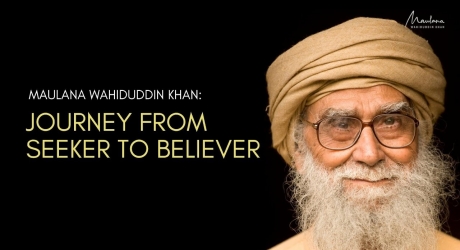Scholars generally define peace as the absence of war. It is a negative definition. The positive definition would be that it is a state with many opportunities. The most critical role of peace is that it opens up the door of opportunities, giving each individual the chance to avail of these opportunities and reach their goal. Opportunities are most important in life. Success can be achieved when one recognises these opportunities and avails them with wise planning. Therefore, it is essential to establish peace in life at any cost. Peace will open up opportunities, and by availing of these opportunities, one can achieve anything that one wants to achieve. Those who engage in violence demonstrate their unawareness of this law of nature. Peace is the only culture for both man and the universe. Today everything one wants can be achieved by treading the path of peace.
Introduction
The Quran outlines a basic principle for peaceful existence in society. It is put thus:
“Reconciliation is best.” (4:128)
This principle teaches that conciliation is the best solution to conflict because, according to God's scheme of things, confrontation is not a tenable approach. An example of this approach was given by God at the time of creation. After He created the first man, God ordained that the angels and the jinns should bow down before Adam. The angels complied, but the leader of the Jinns, Satan, refused to do so. (Quran, 7:18)
These two kinds of conduct set two opposite examples. That of the angels showed the conciliatory approach -- they took the course of Sulh -- while Satan set the example of the confrontational approach. As a result of his arrogant and intransigent behaviour, God told Satan that He would cast him into Hell along with all those who trod his path. And that would be the fate of all those who chose to tread the path of confrontation. Therefore, we must refrain from confrontation at all costs.
Examples from History
The Prophet Adam was the first man to inhabit the earth. His two sons, Cain and Abel, had an argument over an issue which became so heated that Cain killed Abel. While Abel had adopted a conciliatory approach, his brother Cain opted for confrontation. God then revealed the following verse to the Prophet, which has been recorded in the Quran as follows:
“Whoever killed a human being – shall be regarded as having killed all mankind.” (5:32)
This verse not only emphasizes the depravity of the act of killing but also stresses how the circumstances which can lead up to killing should be dealt with. Man must save himself from falling a prey to factors which can predispose him to committing a murder. This indicates that he must avoid succumbing to the negative emotions of anger, vengefulness and hatred. Unless one distances oneself from such factors, one will not be able to save oneself from killing. Right at the beginning of the history of mankind, the example of killing and what leads up to it was set forth in the story of Cain and Abel, so that we should take a lesson from it and be able to prevent ourselves from committing this crime. But, ironically, man has failed to learn from this example, which is why history has time and again been marred by bloodshed. A philosopher once said:
“Man’s history is nothing but a register of violence.”
Examples of Prophets
Prophets were sent to humanity at all times but they did not become a part of recorded history. It is only in either the Bible or the Quran that there is any mention of them.. This is a tragedy of human history in that it has left man bereft of the lessons that he could have learned from the lives of the prophets.
The Prophet Abraham was born in the city of
The Prophet Joseph was of the lineage of the Prophet Abraham. He was born in Canaan but, due to a series of untoward events in his life, he reached
By the time of the Prophet Moses, this situation had undergone a radical change. Since the Hyksos were outsiders, the Coptics (sons of the soil) revolted against them and this dynasty was overthrown. The next dynasty established was that of the Pharaohs. They started abusing the Banu Israel because they were settled in the most fertile lands of
Ironically, Sayyid Qutb has stated in his commentary of the Quran that the Prophet Moses wanted to establish the rule of the Children of Israel in
The Prophet Jesus was born into a Jewish family.
"Give to the King what is due to the King. Give to God that which is due to God."
This formula is applicable even today. The Prophet Jesus set a trend of non-confrontation with government and of availing of opportunities in non-political fields. Having adopted this approach, Christians became the largest community in the world. This conduct of Christians brought to fruition the following Hadith,
"Christians will become the largest community."
The Prophet Muhammad started his mission in 610 AD. At every stage of his mission, he adopted the policy of conciliation. The Prophet's general policy, as told by Hazarat Ayesha was,
"Whenever the Prophet had two options, he chose the easier course." (Al-Bukhari)
He did this on all occasions. During the initial phases of the mission in
Anybody who undergoes similar problems in the form of discrimination or zulm, has the habit of harping on their sufferings. They write, speak and lead protest marches over the injustices they have faced. But Seerah Ibn Hisham recounts that the first Address of the Prophet Muhammad in
“O people! Save yourselves from the fire, be it in exchange for a piece of date-palm.”
During the ten years he spent at
To put an end to conflict with his opponents, the Prophet entered into the Hudaibiyya agreement, which was a unilateral no-war pact for ten years. The treaty imposed humiliating conditions on the Prophet and his Companions, but that did not deter his resolve to adhere to it. For example, according to a clause in the Treaty, if a resident of
The provision was unilaterally unfair, yet it was accepted by the Prophet so as to avail of a no-war pact. He did not hesitate to pay such a big price. And as history records, his policy produced such positive results that within the span of two years, almost the whole of
Conclusion
Throughout history, the policy of confrontation has proved fruitless. The
Yesterday, I was reading a report about social work. I started wondering why people find social work more attractive than Dawah work. I realised that it is because social work aims at alleviating visible suffering, unlike Dawah work, which seeks to make man aware of the suffering that can become his fate in the Hereafter. The suffering of the Hereafter will be far greater, but just because it is not visible, man finds it hard to believe in or even and pay any attention to.
We must therefore introspect and engage in self-reappraisal, so that we may be enlightened by the teachings of the Quran and change our ways for the better, so that we may be successful both in this world and the world hereafter.





